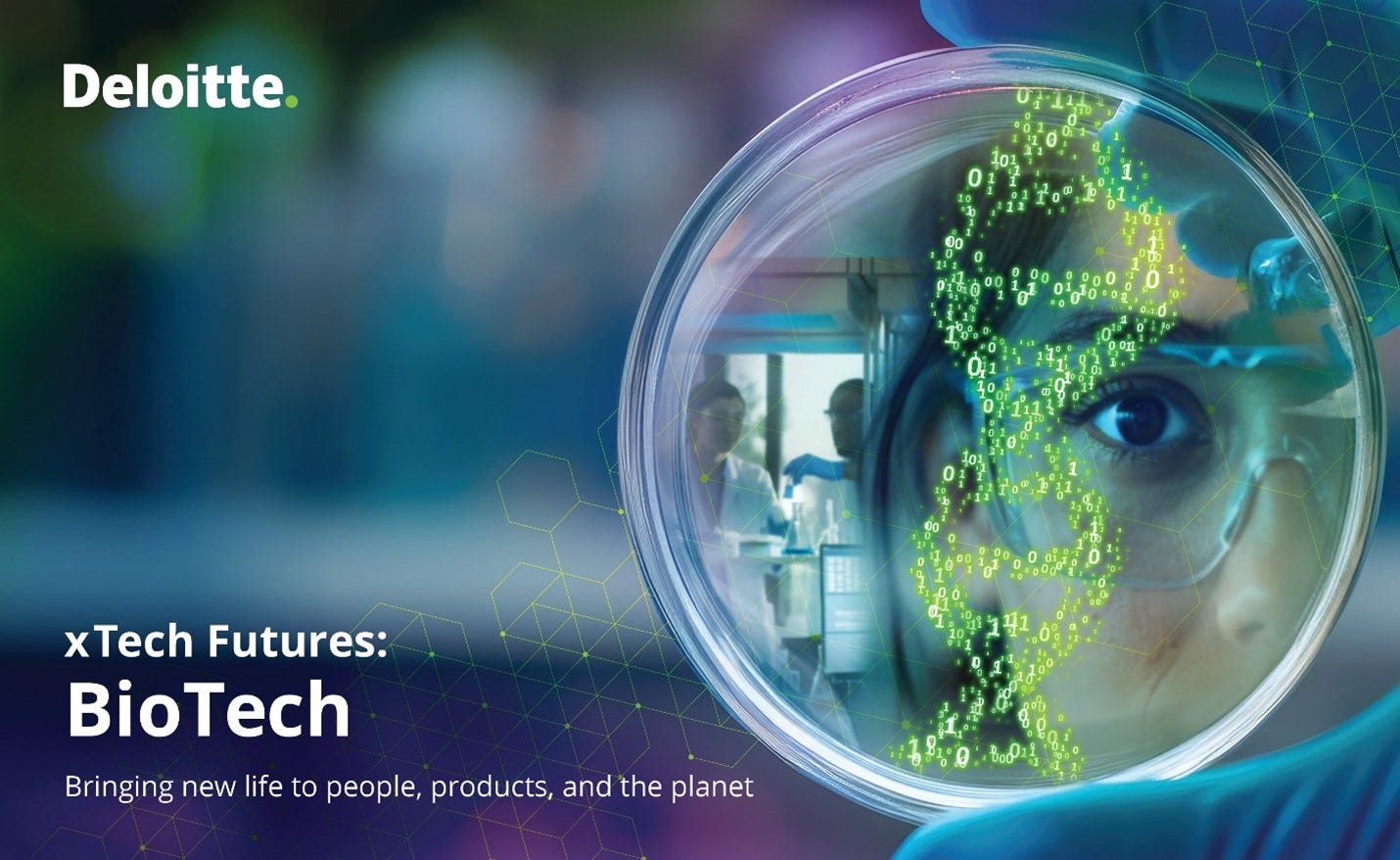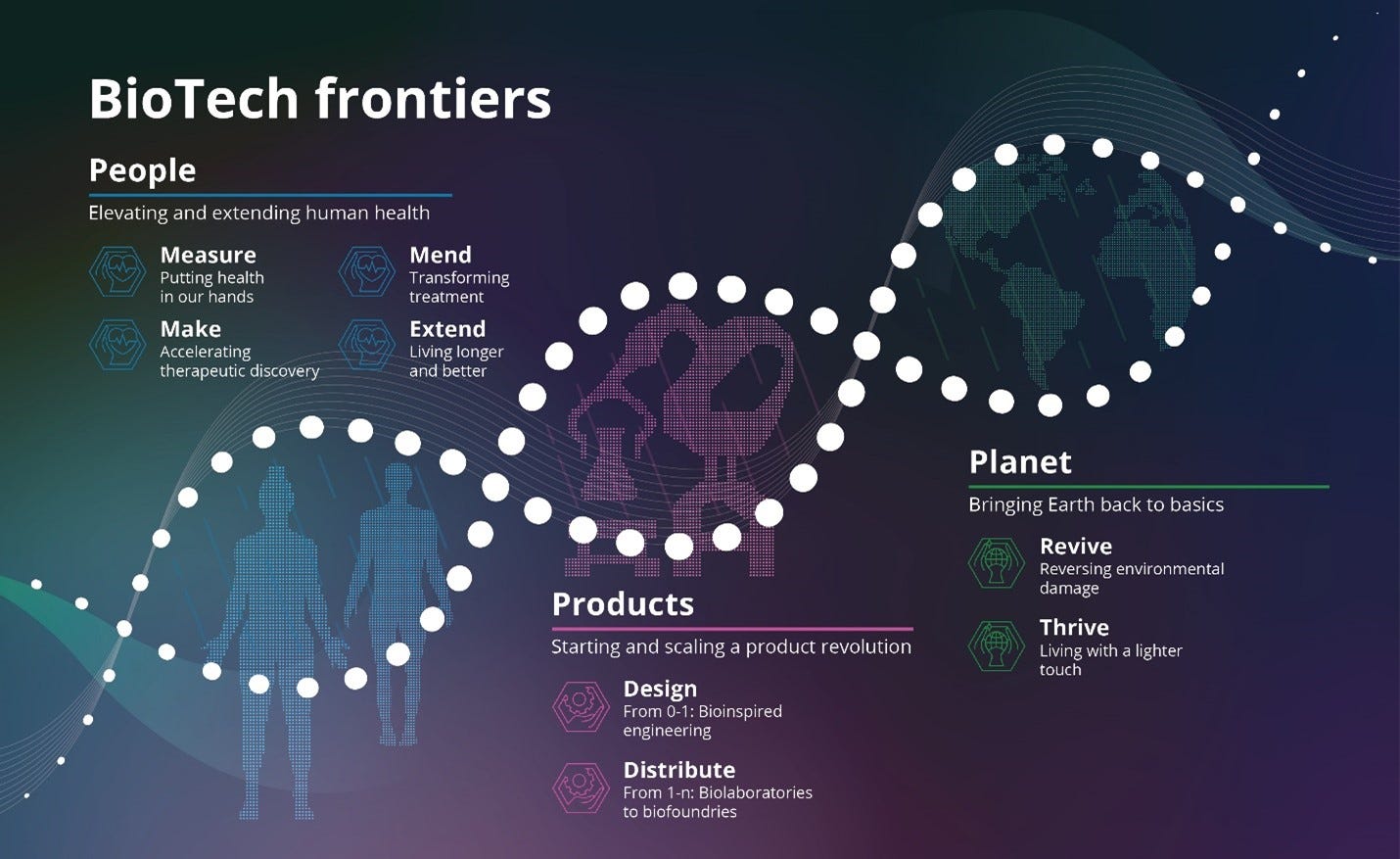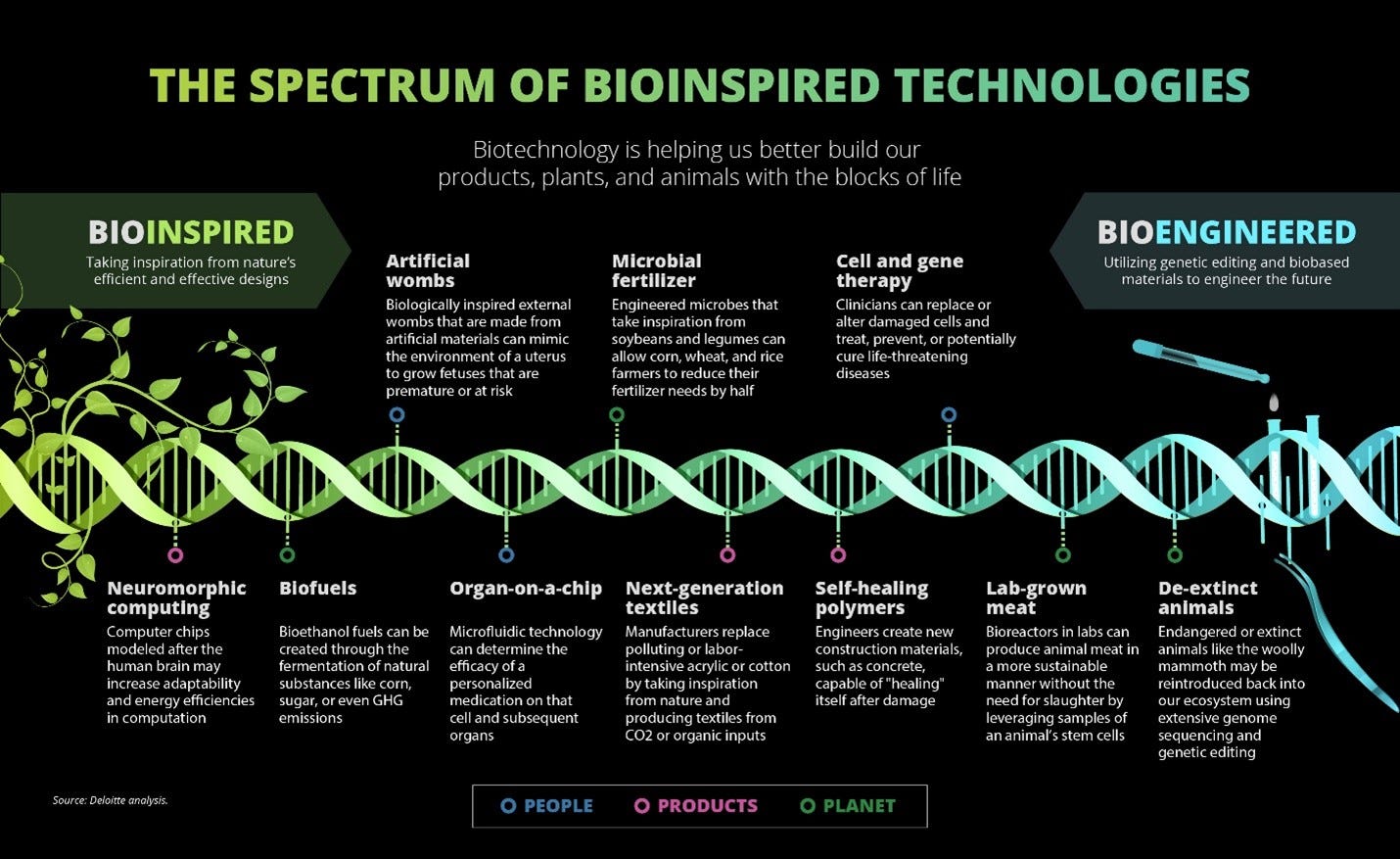Unveiling BioTech: Our newest xTech Futures publication
Our newest report dives deep into the way businesses are harnessing life’s building blocks to kickstart the bio-industrial revolution
What is xTech Futures?
This same time last year, our team of technologists published our first xTech Futures report on SpaceTech. Our aim was to broaden the aperture of our annual Tech Trends report, creating room to talk about the xTechs—or exponential technologies beyond IT—destined to change the way we navigate and experience life.
Our inaugural xTech Futures report chronicled advancements in space technologies, providing an in-depth analysis of the bustling ecosystem of satellites, assets, and space stations orbiting above us. This year’s report focuses less on the macro, more on the micro. Less on what rests above us, more on what lies within us: biotech.
It would be easy to think of advancements in biotech as only relevant to PhDs in lab coats. But the truth is that if your company employs people, delivers products, or is geographically located on planet Earth, then biotech is now relevant for you and your business.
Although generative AI has taken center stage as the mother of all efficiencies, we would posit that there’s no more efficient system than Mother Nature herself. Name a more perfectly orchestrated machine than the human body, or a more effective form of compute than the brain.
Despite how far humanity has come (and boy, have we come far), people still have much to learn from nature. Now, we’re finally paying attention, in a way that’s radically reshaping our industries and ways of being.
Instead of just taking inspiration from nature, we’re now harnessing it. Creating and building with biology so that we can design a better future not just for ourselves, but for all those who follow.
Our xTech Futures: BioTech report marks this revolution.
The DNA of our report
To help you understand your organization’s potential role in the emerging biotech economy, we structured this report into three chapters, as described below in our BioTech frontiers framework.
PEOPLE: A path to longer, better lives for everyone could forever elevate the status quo for health and humanity.
Today, we regard strep throat, a disease that killed around one fifth of those infected prior to antibiotics, a minor inconvenience. In the future, we may look at cancer the same way. Biotechnology is enabling a deeper understanding of human health, a new set of tools to discover and deliver treatments, and a revolutionary ability for people to map and edit their own DNA. Innovative drugs are also changing our very perception of aging, reducing biological age by nearly a decade. Ultimately, today’s breakthroughs could extend our tomorrows, empowering us to live longer and better while improving health equity.
PRODUCTS: Materials that were once shaped by the industrial revolution may now be transformed by the bio-industrial revolution.
The products of the bio-industrial revolution can be both engineered by humans and entirely natural in composition. We can mirror nature’s efficiency and elegance even as we mobilize enormous business applications. Take for instance, Keel Labs, a series A startup in North Carolina, that was inspired by seaweed’s ability to absorb carbon dioxide. The company created a bio-based fabric that uses 70 times less water than cotton and completely eliminates pesticide use. In contrast, the cotton industry requires US$2 billion to US$3 billion in pesticides annually. However, in order to bring about this future, emerging innovations must overcome the most significant challenge of the growing biotech economy: achieving scale.
PLANET: Biotech is blooming in the environment, reactively restoring and proactively preventing ecological damage.
An infusion of life might be the best answer to the present damage in our planet’s delicate natural systems. In this light, the ongoing research into plastic-eating bacteria could significantly alleviate environmental degradation in oceans. Bioengineered systems like these can remove pollutants to heal Earth, and looking forward, we can preserve the planet by remodeling the ways we fuel ourselves and our machines.
As illustrated in the graphic below, innovations across the People, Products, and Planet section of the report show how we are not just taking inspiration from nature, but engineering with nature.
Looking forward
Biotech shouldn’t be regarded as a panacea to apply with reckless abandon, but rather as a powerful tool that demands prudent handling. Imagine, then, a future where we harness this immense power responsibly and intentionally. A future where profitability coexists with, and even promotes, planetary well-being, and products contribute to the restoration of Earth's natural balance. A future defined by a delicate dance of progress and preservation. This is the promise that biotech innovation holds—to challenge the status quo in ways that enable us to live better, richer lives, while also tending to the world that sustains us.
There has never been a better time to leverage the power of biology to help our species, our businesses, and our planet. What will your role be?
Here’s to the future,
Lucas Erb, NExT sensing lead, Daniel Greene, and the entire NExT team









